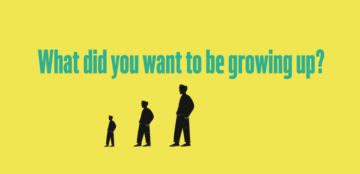Sourdough. What a palaver.
My 16 years old son Jake has used the cancelling of his GCSE’s to become quite an adept baker. (Apart from the sour cream and chive biscuits of three weeks ago. What was he thinking?)
Denied the chance to revise chemistry or biology, he has ploughed into the study of yeast, enzymes and fermentation with impressive energy and we now have a new family member, Zadie the Starter. In a jar in our fridge, looking like a prop from ‘Ghostbusters’ she sits, a living organism regularly transformed into the central element of a lunchtime sourdough feast.
He always wanted a puppy which we steadfastly refused to get. Now we have a wedge of slime that has to be regularly fed, stretched and shaped. Our daily walks are regulated by the requirement to return home and perform the next stage of loaf production. Suddenly, there’s a new baby to care for and even if we could go on holiday somewhere this summer, we’d need to find a ‘starter-friendly’ hotel.
The results are worth the intricate preparation and we are all trying to limit ourselves to no more than six pieces at a sitting. Today, there was much consternation and recrimination in the house. Someone had taken the dough out of the fridge last night and not put it back. Our lunch-time loaf was ruined, and the forensic search for the guilty party is underway. It wasn’t me, promise.
Of course, this is not the only significant baking fail in our nation’s history, and it brings to mind perhaps the most famous example of distraction leading to Breadageddon. In 878, Alfred the Great burnt the cakes. If he hadn’t, we most certainly now would all have been called Jens, whilst drinking even more Carlsberg.
The story goes that Alfred and his men were hiding in the marshes and swamps of Somerset fighting a guerrilla- style was against the Danes, led by their king Guthrum. Living hand-to-mouth and struggling, failure was not a good option as the Vikings usually performed a nasty rite on defeated enemies called ‘a Blood-Eagle’. This involved a sacrifice to Odin by cutting out the victim’s ribs and lungs and spreading them like an eagle’s wings. No wonder Alfred was a bit pre-occupied.
Legend claims he was given shelter by a swine-herder whose wife asked him to watch some loaves cooking beside the fire, whilst she went out to gather wood and clap for the NHS and Carers. Distracted by his problems, Alfred pondered how to fight back and unfortunately, let them burn. He was rudely scolded by the returning woman who did not realise he was actually her king, not an unemployed pastry chef.
The story is used to represent the turning point of Alfred’s life. Professor Rory McTurk, from Leeds University, points out “whether or not the legend is true, it was of massive significance to Alfred. He built a fort, rallied his troops and from this point onwards did much better against the Vikings.” Instead of having a violent death, he made peace with Guthrum, divided the kingdom and even became his godfather.
Alfred is the only British monarch with the epithet ‘Great’ and it certainly wasn’t because of his baps ands baguettes. He brought some level of peace to the land, introduced town-planning to those that existed and created new urban developments of his own. Becoming literate in later-life, he was a prolific translator of religious and philosophical texts.
Near death, he translated Boethius’s ‘Consolation of Philosophy’ and concluded “every natural gift and every capacity in us soon grows old and is forgotten if wisdom is not in it. Without wisdom, no faculty can be fully brought out, for anything done unwisely cannon be accounted as skill”.
Which brings me to conclude that it is fine to make a mistake if you are thinking hard about a major problem. When Alfred absent-mindedly burnt the bread, history suggests the incident actually reveals the resilience needed as a leader to avoid defeat.
To be wise you need to be strong, never more so than now.
Your first decision may not be the right one. Your next decision may not be a popular one. Your final decision may be the opposite of your first bit of thinking. But your wisdom will derive from strength and persistence in continually confronting a problem, considering all eventualities and acting with consideration.
It is okay to burn the cakes. This means when you are thinking about the big problems your business may face, the superficial tasks, important as they are, may need to get lost. Everyone is looking for wise leadership at the moment. Avoid distraction – that’s the key.
Anyway, I’d love to offer a few more telling insights to you all, but I have to go and take Zadie the Starter for her clarinet lesson. Heaven help me if I forget.



